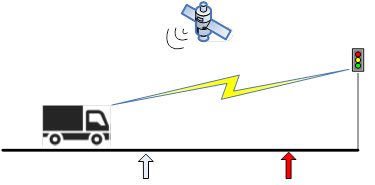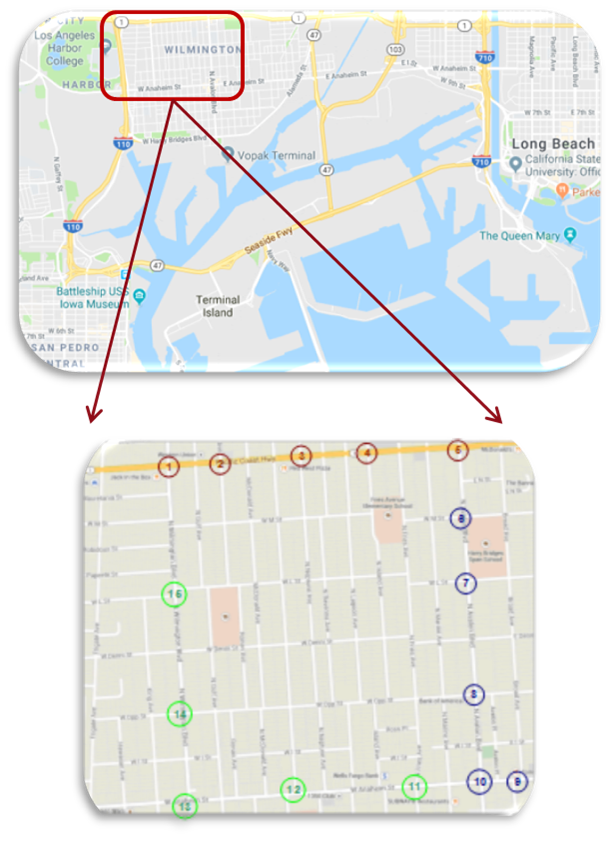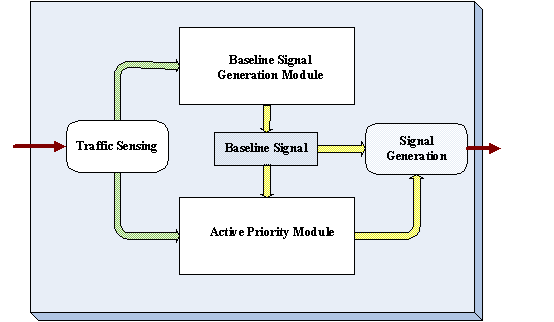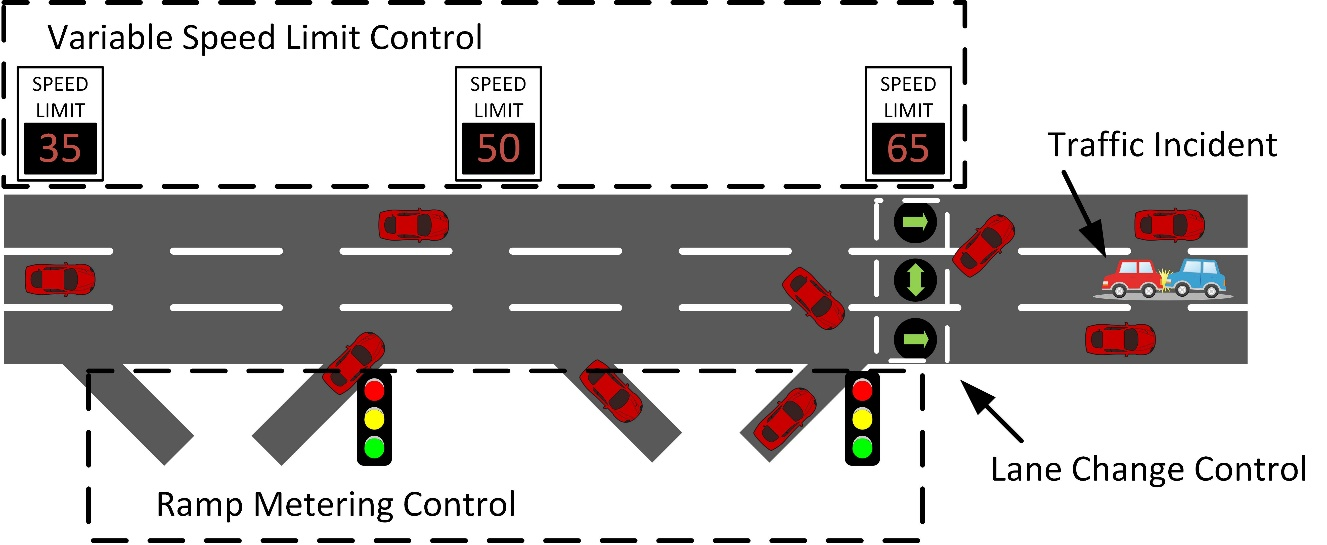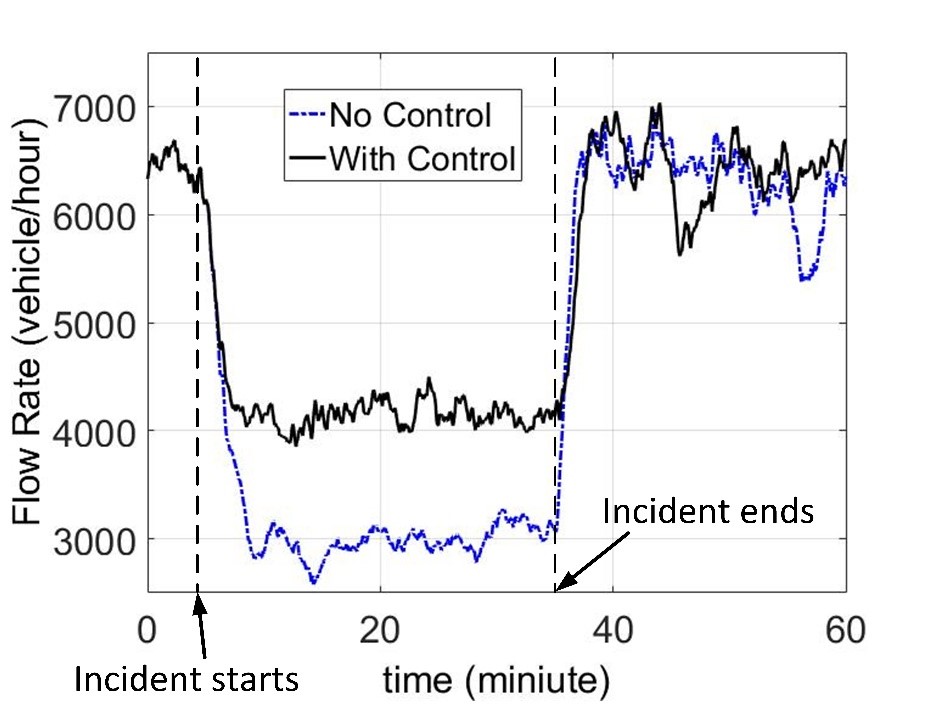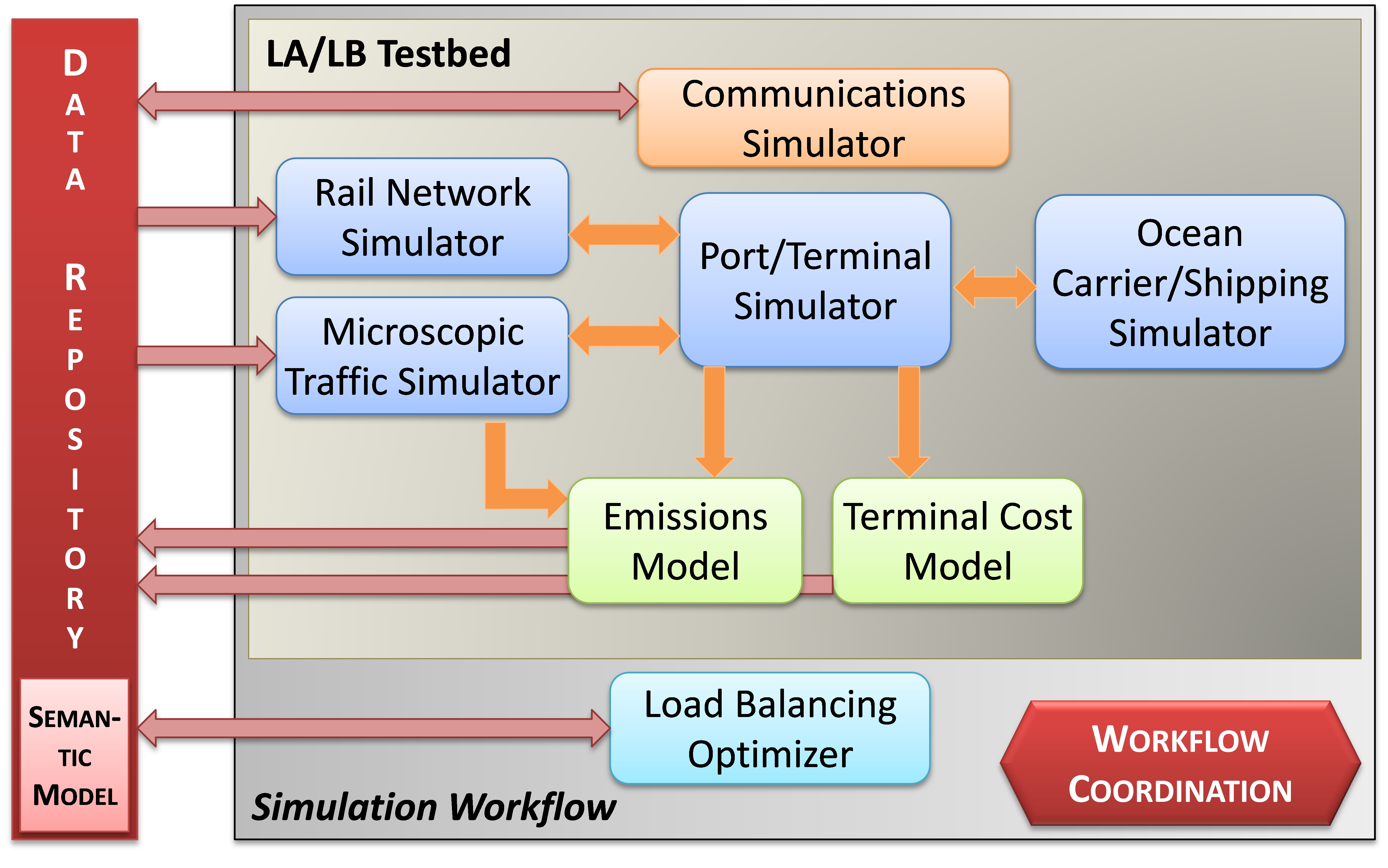News | METRANS 20th Anniversary Feature Article by Petros Ioannou
Stop the VideoNews

This article is part of an ongoing series that describes research accomplishments and achievements of the METRANS Transportation Center in recognition of its 20th Anniversary. Dr. Petros Ioannou is the A.V. "Bal" Balakrishnan Chair of the Ming Hsieh Department of Electrical Engineering, Professor in the Department of Electrical Engineering-Systems, and the Director of the Center of Advanced Transportation Technologies at USC’s Viterbi School of Engineering. His article focuses on freight research projects spanning the years and their present implications.
Twenty Years of METRANS Freight Research Contributions
By Petros Ioannou
The port complex of Los Angeles and Long Beach is one of the nation’s busiest gateways for international import, and its connection of road and rail networks operate in the most congested metropolitan area in the world—Los Angeles County. Mobility, environment, costs, congestion, competition and lack of coordination, among other factors, create a complex freight system with many inefficiencies. The rising demand for urban freight research is critical and METRANS has met that demand, both in the past and present, through numerous urban freight-related research projects.
Information technologies and intelligent transportation systems, in general, provide opportunities to change the way businesses are carried out in order to optimize operations, improve efficiency, encourage collaborations, and reduce impact on the environment. Over the years, METRANS has produced foundational freight research focused on new technologies for efficiency, logistics, policy issues for ports and multimodal transport. Below are some examples of METRANS’ research contributions.
Traffic Light Priority for Trucks: Trucks are responsible for much of the delay in traffic due to slower deceleration and acceleration and the sheer quantity of trucks on the read. This research poses the question: can trucks be given priority in a way that benefits all vehicles and the environment? Using detailed traffic simulation models of the road network around the LA/LB ports, METRANS research concluded that truck priority traffic management can be an effective tool for reducing truck-related congestion and emissions.
Empty Container Reuse: In current practices, terminals serve as storage for empty containers. Exporters in need of an empty container have to drive to a terminal to pick one up, and importers who want to drop off the container have to drive to the terminal to deliver it. Optimizing the exchange of empty containers has been an active topic at METRANS. Significant benefits include reduced costs, less pollution, and less road network congestion.
Multimodal Freight Routing: Under METRANS there have been significant research efforts surrounding freight routing and load balancing across time periods, routes and modes. The need for objective, central coordination versus individual decision-making gives rise to a wide range of research topics, including: use of incentives, policy issues, user acceptance and benefits, and the impact on the environment.
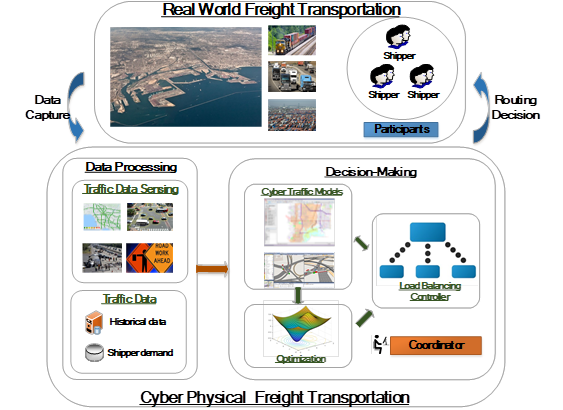
Intelligent Parking for Trucks: Insufficient truck parking has been an issue causing a broad-range of other problems in the trucking industry. Research at METRANS aims to change the inefficient utilization of parking capacity by coming up with information technologies and parking prediction algorithms, which will enable truckers to make more intelligent decisions. The benefits involve less unnecessary idling, improved safety, reduced fuel consumption, pollution, and costs.
Centralized Chassis Processing: Chassis are usually stored in terminal yards, which may be a problem in areas with scarce land. The constant retrieving and depositing of chassis also generates unnecessary truck traffic within and outside the terminal. METRANS suggests developing a centralized chassis processing center to optimize this exchange and benefit users, terminals, and the environment.
Positive Train Control: Rail tracks are shared by both passenger and freight trains and still operate using the block system, which limits capacity to one train per designated section in an already congested rail network. In search of greater efficiency, METRANS researches the use of communications within trains, between trains, and the control center. A streamlined flow of information would allow the use of dynamic headway instead of the conservative block system, ultimately increasing capacity while maintaining higher levels of safety.
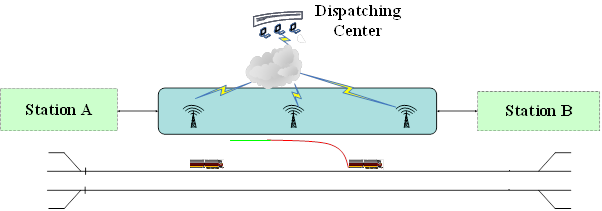
Integrated Traffic Flow Control and Management: Traffic congestion is a widespread problem in many metropolitan areas. METRANS research develops traffic control techniques such as variable speed limit, lane change, and metered ramps. These control techniques take into account the presence of trucks whose dynamics, size, and lower speeds impose additional constraints. The benefits of integrated traffic flow control and management research involve reduced congestion, improved travel times, lower pollution, and improved fuel economy.
Simulation Testbed: Creating solutions to the efficiency issues of the Los Angeles and Long Beach port complex requires constant examination and testing. Using both microscopic and macroscopic simulators, METRANS developed a simulation testbed that includes the twin ports and the surrounding rail and road networks. These simulators allow METRANS to evaluate new technologies and approaches with respect to performance, spillover effects, impact on the environment, etc. The simulation testbed is a low-cost, extremely useful tool that brings theory closer to reality without disrupting existing transportation system operations. It allows researchers to evaluate the impact of a technology or policy change in one part of the multimodal network or the network as a whole.
As the trade and transportation industry prepares for advancing technologies and research resolutions to take hold, METRANS is committed to partnering with policy-makers and the private-sector to ensure the future of a more sustainable and efficient goods movement system. METRANS 20th Anniversary is an opportunity to celebrate the valuable legacy of freight-related research and to look forward to the work ahead.
News Archive
- December (1)
- November (6)
- October (4)
- September (2)
- August (3)
- July (4)
- June (3)
- May (7)
- April (8)
- March (11)
- February (8)
- January (7)
- December (7)
- November (8)
- October (11)
- September (11)
- August (4)
- July (10)
- June (9)
- May (2)
- April (12)
- March (8)
- February (7)
- January (11)
- December (11)
- November (5)
- October (16)
- September (7)
- August (5)
- July (13)
- June (5)
- May (5)
- April (7)
- March (5)
- February (3)
- January (4)
- December (4)
- November (5)
- October (5)
- September (4)
- August (4)
- July (6)
- June (8)
- May (4)
- April (6)
- March (6)
- February (7)
- January (7)
- December (8)
- November (8)
- October (8)
- September (15)
- August (5)
- July (6)
- June (7)
- May (5)
- April (8)
- March (7)
- February (10)
- January (12)





